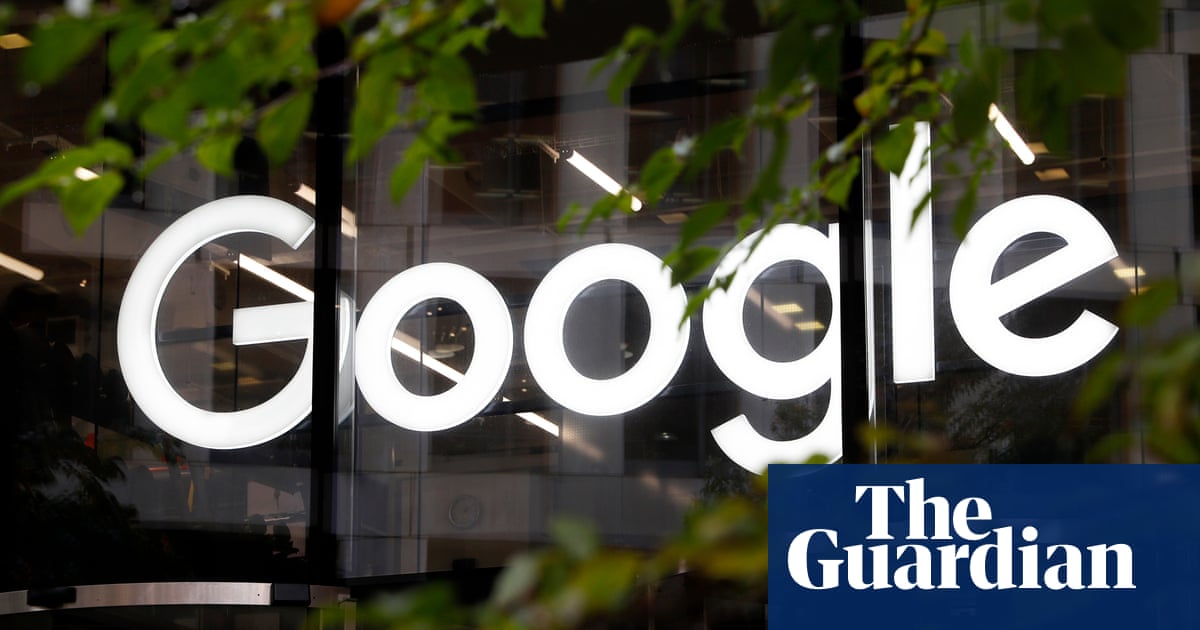
Google has threatened to remove its search engine from Australia if a code forcing the company to negotiate payments to news media companies goes ahead, saying the proposal sets a “dangerous precedent”.
Last week it was revealed Google was testing removing news sites, including Guardian Australia, from search results for about 1% of its Australian users as the company continued to push against a code that would force it to negotiate with news outlets to pay for linking to news articles in search results.
But on Friday Google said it was prepared to go much further, and pull the entire search function from Australia.
The company’s Australian managing director, Mel Silva, told a Senate committee on Friday the proposed news code was untenable and would set a “dangerous precedent” for paying for links.
“The principle of unrestricted linking between websites is fundamental to search and coupled with the unmanageable financial and operational risk is this version of the code were to become law, it would give us no real choice but to stop making Google Search available in Australia,” she said.
“Withdrawing our services from Australia is the last thing that Google want to have happen, especially when there is another way forward.”
Silva said the company wanted to make changes to the code to make it “workable”, and the company was keen to enter into agreements with media companies to pay for content, pointing out around 450 deals have been made with media companies around the world.
Senators repeatedly questioned Silva about what they said was a threat, asking whether it was simply about avoiding the precedent it would create worldwide for paying for news in search results.
Silva denied it was a threat, just the “worst case scenario” if the code went ahead.
Independent senator Rex Patrick compared Google’s threat with China threatening Australia’s trade in response to the inquiry into Covid-19. He said Google’s response was not about “breaking” search, but Google protecting its revenue.
“It’s about breaking your bank account, that’s what this is about,” he said. “It does not touch the the internet and the way in which it works.” he said.
Silva told the hearing that last year Google paid $59m in tax on profits before tax of $134m, and $4.8bn in revenue in Australia.
The hearing continues today with Facebook, several news media outlets, and the Australian Competition and Consumer Commission.
Representatives from Facebook repeated the company’s previous threat to pull news content from user feeds if the code goes ahead. Josh Machin, Facebook’s head of public policy in Australia, said if the code goes ahead, Facebook would potentially prevent not just news companies from posting links to news articles on Facebook, but all users based in Australia.
Machin said news articles make up under 5% of what the average user sees in their feed, and Facebook did not get much commercial benefit from news articles posted on Facebook.
When asked whether Facebook profited from fake news posted on the platform, Machin said no commercial benefit was gained by Facebook on its users posting fake news.
Greens senator Sarah Hanson-Young asked Machin multiple times whether the company had removed any misinformation posted by Liberal backbench MP Craig Kelly, but Machin would only say content had been removed “from a number of public figures in Australia.”
The company has also called the code unworkable in its current form, and has asked for digital platforms to be given six-months’ grace to negotiate deals with news companies directly before being hit with the “big stick” of the mandatory code.
News companies that support the code – including Nine, AAP, News Corp, Guardian Australia, Free TV Australia, ABC and SBS – will all appear before the committee, as well as the Australian Competition and Consumer Commission and department officials.
Nine has argued the digital platforms need to be regulated because they are monopolies within Australia, and should pay for news content because “access to news content drives credibility for and value of the platforms”.
Newswire service AAP has said it supports the code, but notes that as a wholesale news provider it would not directly benefit from the code so would need other government support.
A poll released on Friday morning found three in five Australians believe social media companies should prioritise news websites in news feeds.
Dynata polled 1,003 people on 14 and 15 January on behalf of the Australia Institute and found 62% of people agreed social media companies should prioritise journalism in user feeds, and 84% agreed they should be transparent about how their algorithms influence user feeds, and should take steps to stop the spread of misinformation.
The poll found 75% believed anonymous accounts should be banned, but people aged over 60 were much more likely to call for a ban on anonymous accounts (88%) compared with those 18 to 29 (59%).












